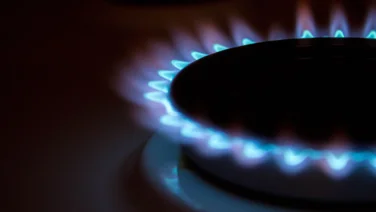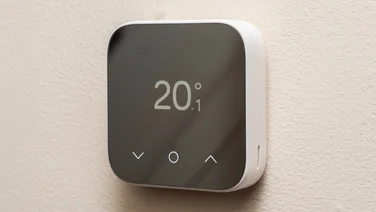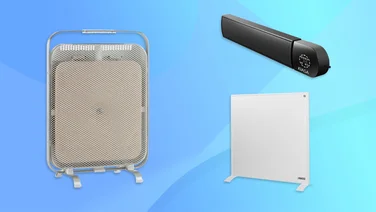To help us provide you with free impartial advice, we may earn a commission if you buy through links on our site. Learn more
- Get a free solar panel installation quote today
- How much energy does a solar panel produce?
- Can a solar panel system produce enough energy to power my home?
- Does the UK get enough sun to generate much solar energy?
- Can I monitor how much electricity my solar panels produce?
- What is a solar panel's power rating?
- Is solar panel power the same as solar panel efficiency?
- What else affects how much energy a solar panel produces?

Solar panels have become a wise investment in the UK: national grid electricity remains very expensive, while solar prices are falling. But how much electricity does a solar panel actually produce, and is it enough to power your entire home?
The simplest way to measure how much energy a solar panel produces is to multiply the panel’s power rating by the amount of direct sunshine it gets. A powerful panel bathed in hours of sunshine could generate as much as 2kWh (kilowatt hours) of electricity in a day – which is sufficient to power a small household all day in summer.
However, other factors also influence the energy output, including the panels’ position on your roof . In this article, we run through all the key factors that impact output, so that you can estimate how much energy your own solar panels will produce.
READ NEXT: Best solar panels
Get a free solar panel installation quote today
If you’d like to chat to a professional installer about switching to solar, enter a few quick details in our short form below. We’ll put a hand-picked selection of solar providers in touch.
How much energy does a solar panel produce?
As mentioned above, the two main factors that determine solar panel energy output are panel power and sunshine. In the UK, a typical solar panel has a power rating of 350W (watts), and a typical day would have four hours of sunlight. The easiest way to estimate output in kWh is to multiply those numbers (350W x 4 hours), which gives you a figure of 1.4kWh.
But while many solar providers suggest using this simple equation as a means to provide an indication of generation, it may overestimate the energy a solar panel can produce. Renewables gurus The Eco Experts calculate that a 350W panel will produce an average of 265kWh of electricity per year in the UK, which is only around 726W per day – half the 1.4kWh estimate above. Nevertheless, that’s still probably sufficient to watch a 42in LED TV for about nine hours , all from a single solar panel.
READ NEXT: Are solar panels worth it?
Can a solar panel system produce enough energy to power my home?
Yes. When planning your solar panel installation, your provider should match the size of your solar PV system to the amount of electricity your household uses. The average UK household uses 2,700kWh of electricity per year ( Ofgem figures), or 8kWh per day. To cover that amount through power generated using solar panels, you would need between six and 12 panels, each producing between 680W and 1.4kWh of electricity per day.
However, you can’t use all this generated electricity to power your home unless you add a solar battery to your PV system. On average, 42% of a UK household’s energy use happens after dark, when solar panels don’t produce energy, at which point it would come from the national grid. Add a battery, though, and you can store the electricity generated by your panels in the day to use after dark – and use far more of the energy the panels produce.
Note that solar batteries don’t let you use 100% of the electricity your solar panels produce. This is because, like all rechargeable batteries, they use some of their power to run and charge. But the best solar batteries on the market have a usable capacity of 90% or more. That means, with a battery, you can use 90% – or more – of the energy generated by your solar panels to power your home. Without a battery, the figure would be about 50% .
READ NEXT: Best solar battery storage UK
Does the UK get enough sun to generate much solar energy?
Yes, it does – especially in spring and summer. Nevertheless, you will still need a greater number of (and more powerful) solar panels than you would in a sunnier country such as Spain.
To put that in context, Alicante in Spain gets an average of 349 hours of sunshine per month, while London ’s average per month is 138 hours. Use the wattage x sunshine calculation and you’ll find that while you could generate 3.5kWh of electricity per day from just one 350W solar panel in Alicante, in London that one panel would deliver 1kWh.
However, there’s more to it than that. The temperature of direct sunlight in Spain is frequently too high for optimal solar panel efficiency, which peaks at 25°C . So UK sunshine may actually be worth more per hour in electricity terms than the hot Spanish sun.
Also remember that the UK’s average hours of sunshine vary far more across the year than they do in Spain. In May 2020, during the first Covid lockdown, the UK was seeing an average of nearly 10 hours of sunshine per day , which is Alicante levels. But in December, that figure drops to between one and two hours of daily sunshine.
READ NEXT: Find solar panels in the right size and wattage for your home
Can I monitor how much electricity my solar panels produce?
All solar panel systems have a meter installed alongside, ideally in an accessible part of your home to enable you to keep an eye on how much energy your system is producing.
To make monitoring easier still, the majority of solar panel brands now offer an app to let you keep an eye on your system from your phone or laptop. For those that don’t come with their own dedicated apps, there are also some free apps available that will provide this information regardless of the manufacturer of your solar panels. SolarEdge Monitoring and Enphase Enlighten are two good examples, both free to install and use.
Whichever monitoring option you use, let your installer know if your panels’ output dips unexpectedly. It may indicate a problem that can be fixed.
READ NEXT: How to clean your solar panels
What is a solar panel’s power rating?
If you want your solar panels to produce as much electricity as possible, then consider buying panels with a high power (output) rating. This measures the energy output capacity of an individual solar panel, measured in Watts.
For example, the AIKO N-Type ABC White Hole Series solar panel has a chunky power rating of 620W, while the lightweight Panasonic HIT N340 has a more typical power rating of 340W. You can even buy solar panels now with power ratings well above 600W, such as the 670W Seraphim SRP-670-BMC-BG. Find out more in our article on the best solar panels you can buy in the UK.
The power rating tells you how much electricity an individual solar panel produces under ideal operating conditions. These conditions are officially known as Standard Test Conditions (STC), and they include a solar cell temperature of 25°C and 1kW per square metre of solar energy (sunlight) shining on the panel.
All solar panel manufacturers use the same STC conditions to determine the headline wattage of a solar panel, so you can be sure that a 500W panel will produce more energy from exactly the same amount of sunlight as a 350W panel.
READ NEXT: DIY solar panels
Is solar panel power the same as solar panel efficiency?
No, but these are closely related metrics, both measured under STC conditions to help you and your installer work out how much energy the panel can produce.
In short, a solar panel’s efficiency rating measures how well it can convert sunshine into electricity. The more efficient your solar panels, the less reliant you’ll be on wattage and perfect conditions to generate electricity, and the fewer panels you might need to install.
READ NEXT: How efficient are solar panels?
What else affects how much energy a solar panel produces?
We’ve already mentioned that the location of your solar panels can have a considerable impact on the amount of energy produced. What does this actually mean? Here’s a rundown of the energy output factors you need to know.
Direction of your roof: For solar panels to generate maximum energy from the sun on a UK roof, they should face south, be pitched at 35-degrees from horizontal and not be overshadowed by trees or other buildings – all of which gives them the best chance of capturing sunlight. West-facing panels can also generate a good amount of electricity. We explore this in detail in our article on the best direction for solar panels .
Your location: This is a much less significant factor than the direction of your roof, but the UK town or city you live in can make more than a 10% difference to the output of a solar panel. All else being equal, a solar panel in Edinburgh generates about 90% of the electricity a solar panel on the South Coast can.
Your solar inverter: The inverter is the part of your solar PV system that converts direct solar electricity into AC electricity that you can use in your home. As a result, the type of inverter can make a significant difference to the amount of energy your solar panels produce. With basic string inverters, for example, if one panel stops working properly then your entire PV system produces less energy. Micro-inverters are more expensive, but better at maintaining optimal output across an entire system.
Dirt and build-up: Your solar panels will work at their best, and produce more electricity, when there’s plenty of airflow around them and they’re free of dirt and leaves. In the UK, dirty residential panels are generally reckoned to be 20% less efficient than clean panels. Find out more in our in-depth article on cleaning your solar panels .
Solar panel condition: Faults, degradation and even small scratches can stop your solar panels producing as much electricity as they should. You don’t have to clamber up onto your roof to check on them, though: most PV systems come with monitoring apps that you can install on your phone to track performance. If you notice a dip in output, contact your solar installer. Find out more in our article on solar panel maintenance .
Solar installation: One of the best ways to ensure you get the maximum output from your solar panels is to have them installed by an experienced professional. The right solar installer will understand your electricity needs, recommend the right size and type of solar panels for your home, wire them properly and help you with any troubleshooting afterwards. To get tailored quotes from our trusted installers, fill in the short form above.






